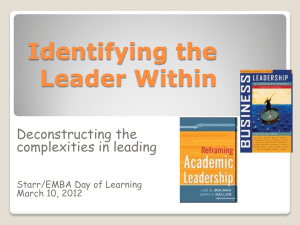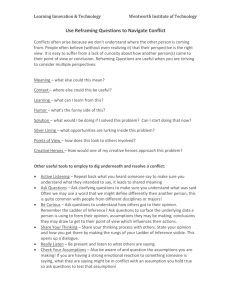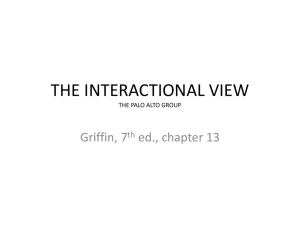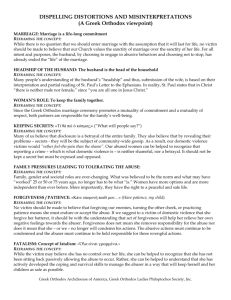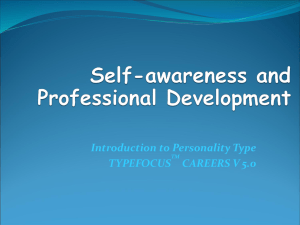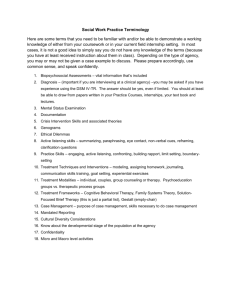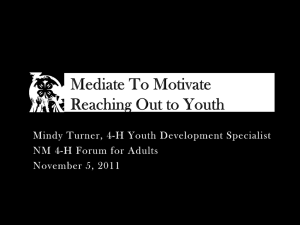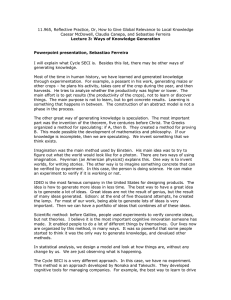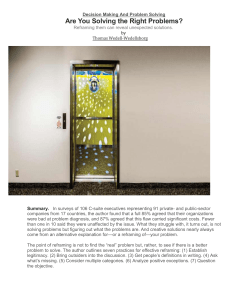Chapter 16
advertisement
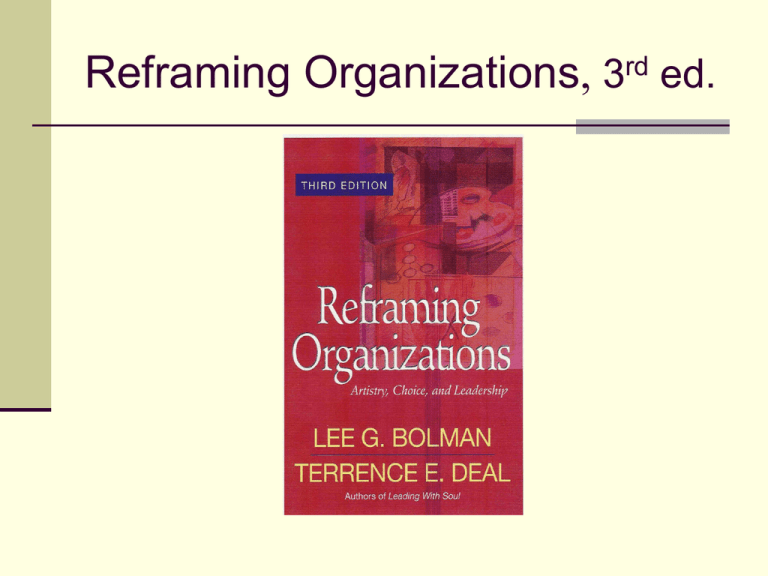
Reframing Organizations, 3rd ed. Chapter 16 Reframing in Action – Opportunities and Perils Reframing in Action – Opportunities and Perils Cindy Marshall: new manager with a big challenge Structural Scenario Human Resource Scenario Political Scenario Symbolic Scenario The Power and Risks of Reframing Reframing for Newcomers and Outsiders Cindy Marshall New manager with big challenge High risk dilemma: looking weak vs. acting impetuously Each frame suggests distinct possibilities Reframing as tool for generating options Scenarios: story-lines for generating options for action Each frame can be effective or not, depending on skill and insight of individual Structural Scenario Clarify goals Attend to relationships between structure and environment Design and implement structure to fit circumstances Focus on task, facts, logic, not personality or emotion Human Resource Scenario People are at the heart of organization Respond to their needs and goals, and they’ll be committed and loyal in return Align needs of individuals and organization, serving best interests of both Support and empower people Show concern, listen to their aspirations Communicate warmth and concern Empower through participation and openness Give people resources and autonomy they need to do their jobs Political Scenario Recognize political reality, deal with conflict Scarce resources produce conflict over who gets what Know the players (individuals and interest groups) and what they want Build ties to key players and group leaders Build a power base and use power carefully Overplaying your hand makes you weaker Create arenas for negotiation and compromise Look for and emphasize common interests to unify your group Rally troops against outside enemies Symbolic Scenario Most important part of leader’s job is inspiration Give people something to believe in People get excited about a special place with unique identity where their work is important Be passionate about making organization the best of its kind, communicate your passion Use dramatic, visible symbols to involve people, communicate the mission Be visible, energetic Create slogans, hold rallies and celebrations, give awards, manage by walking around Study and use organizational culture Use heroes, stories, traditions as a base for build cohesive, meaningful culture Articulate a persuasive, exciting vision The Power and Risks of Reframing Frames can be used as scenarios or scripts to generate options and guide action By choosing a new script, we can act in new ways and create new possibilities Choose the role and drama that works for you Each frame has distinctive advantages and risks Frame Risks Frame Risks Structural Ignore non-rational elements: irrational neglect of human, political and cultural elements Over-rely on authority and underrely on alternative sources of power Blinded by romantic view of human nature Too optimistic about trust and win-win in high-conflict/high-scarcity situations Human Resource Frame Risks Frame Risks Political Becomes cynical, self-fulfilling prophesy that intensifies conflict, misses opportunities for rationality and collaboration You may be seen as amoral, scheming, selfish Symbolic Concepts are elusive Effectiveness heavily dependent on user’s art and skill Symbols may be employed as fluff, camouflage, manipulation Awkward use of symbols may produce embarrassment, ridicule Reframing for Newcomers and Outsiders Use of only one or two frames often leads to entrapment: inability to generate effective options in tough situations Risk is even higher for newcomers and outsiders (including members of groups that have historically been excluded) Newcomers and outsiders are less likely to get a second chance or the benefit of the doubt when they make mistakes Conclusion Mangers can use the frames as scenarios, or scripts, to generate alternative approaches to challenging circumstances. Reframing is a complex skill that takes time and persistence to develop
